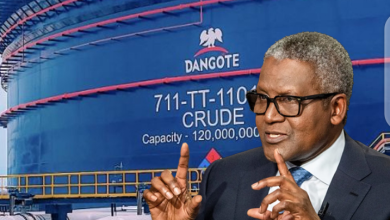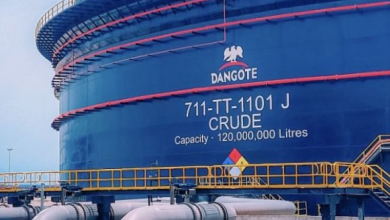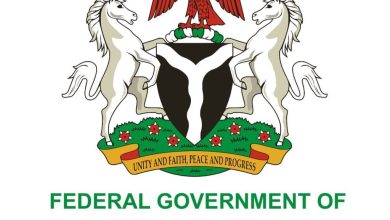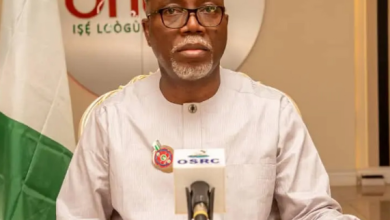Business
Oil price decline threatens Nigeria’s $5bn loan deal with Aramco
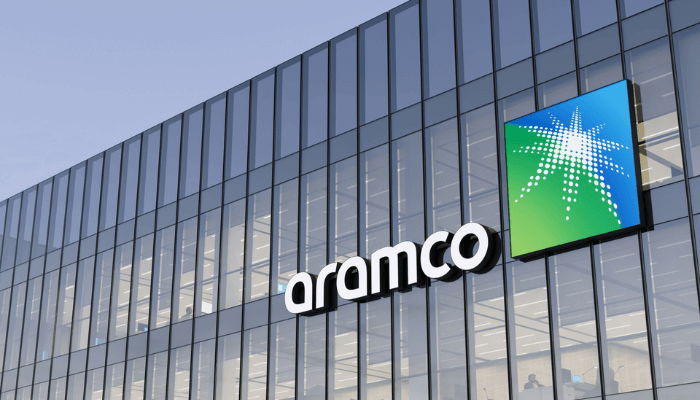
Discussions between Nigeria and Saudi Arabian oil company Aramco over a $5 billion oil-backed loan are facing challenges due to the recent decline in crude prices.
According to reports by Reuters, the decline in oil prices could reduce the size of the deal.
The major oil benchmarks continue to hover above the $60 range after a significant selloff in early April, over OPEC+’s announcement to increase the unwinding of voluntary production cuts totalling 2.2 million barrels per day, and renewed concerns over President Donald Trump’s trade war rhetoric impacting hydrocarbon markets.
Eight OPEC+ countries have agreed to steadily increase output through at least July, at a pace of 410,000 barrels per month.
The facility would be Nigeria’s largest oil-backed loan to date and Saudi Arabia’s first participation of this scale in the country, although the decline in oil price could shrink the size of the deal, the sources said.
The report quoted two sources as saying President Bola Tinubu first initiated discussion on the loan in November when he met with Saudi Crown Prince Mohammed bin Salman in Riyadh at the Saudi-African Summit.
The slow progress in discussions reflects the strain of the recent oil price drop, caused largely by a shift in OPEC+ policy to regain market share rather than curtail supply.
Brent has fallen about 20 per cent to around $65 per barrel from above $82 in January.
A lower oil price means the Federal Government could need more barrels to back the loan, but years of under-investment are complicating its ability to meet production goals.
Data by the Organisation of the Petroleum Exporting Countries (OPEC) puts Nigeria’s current oil production at 1.4 million barrels per day. Condensate production is around 200, 000 barrels per day.
Tinubu sought approval for $21.5 billion in foreign borrowing last month to bolster the budget, and the $5 billion oil-backed facility under discussion with Aramco would be part of that, sources told Reuters.
The banks involved in the talks that are expected to co-fund part of the loan with creditor Aramco have expressed concerns about oil delivery, which has slowed discussions, sources said.
Gulf banks and at least one African lender are involved, they added. Reuters could not establish the banks’ identities.
“It’s hard to find anyone to underwrite it,” one source said, citing concerns over the availability of the cargoes.
Saudi Aramco declined to comment. Nigeria’s state-owned oil company, NNPCL, did not comment, and neither did the finance or petroleum ministries.
Nigeria has years of experience taking out and repaying oil-backed loans, which the government uses for budget support, shoring up foreign reserves or to revamp state-owned refineries
At $5 billion, the Aramco loan would be backed by at least 100,000 barrels per day of oil, the sources said.
However, it would almost double the roughly $7 billion of oil-backed loans taken in the last five years.
Oando is expected to manage the offtake of the physical cargoes, the sources said.
The Federal Government is using at least 300,000 bpd to repay NNPCL’s other oil-backed loans, though one facility is expected to be paid off this month.
The amount of oil going towards repaying existing oil-backed loans is fixed, but when the crude price falls, it takes longer to repay them.
Additionally, lower prices mean the NNPCL has to pump more crude oil to joint-venture partners, from international majors like Shell to local producers like Oando or Seplat, for its portion of operation costs.
“You have to either find more oil or find a way to renegotiate those deals,” the report quoted another source.
Reuters
